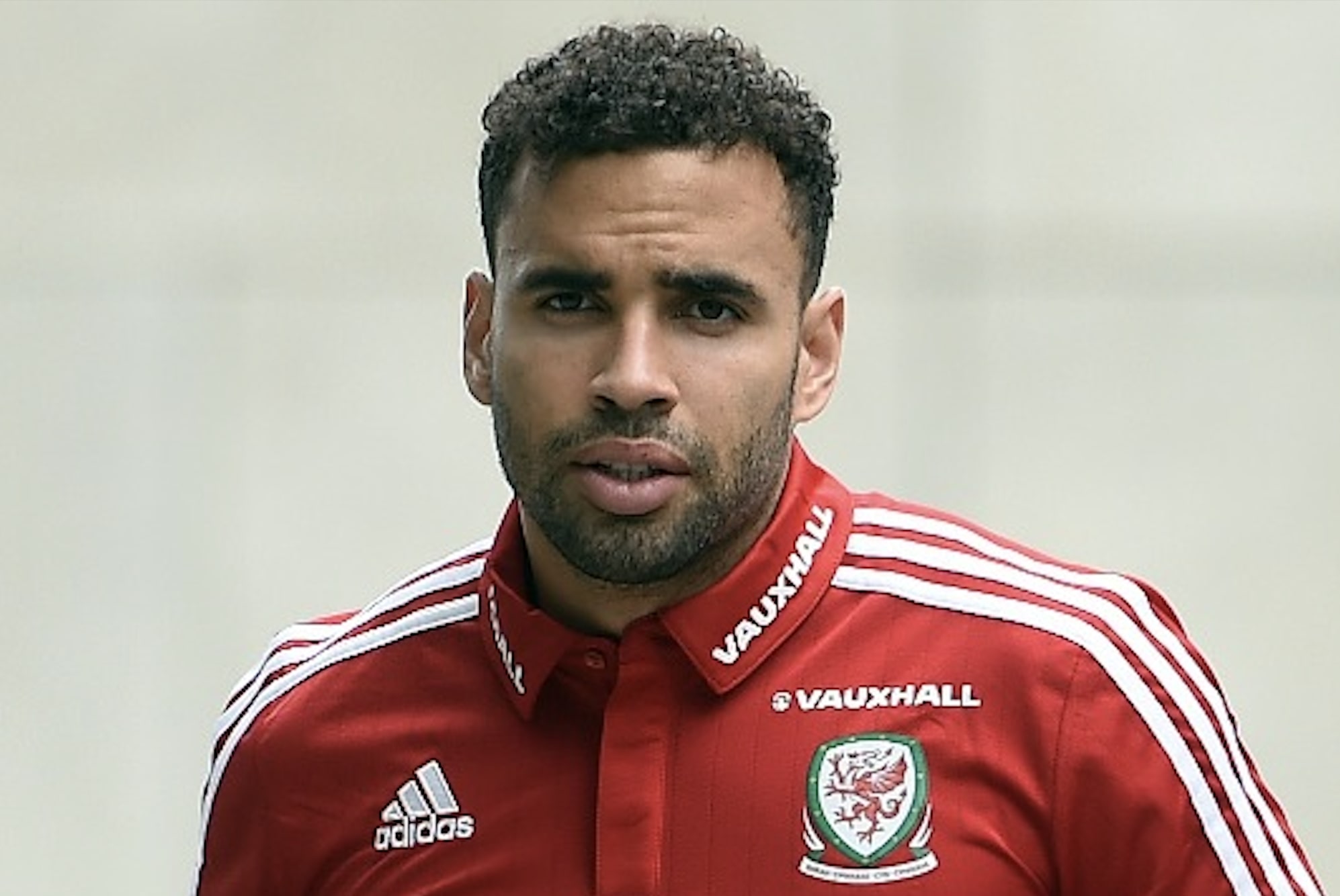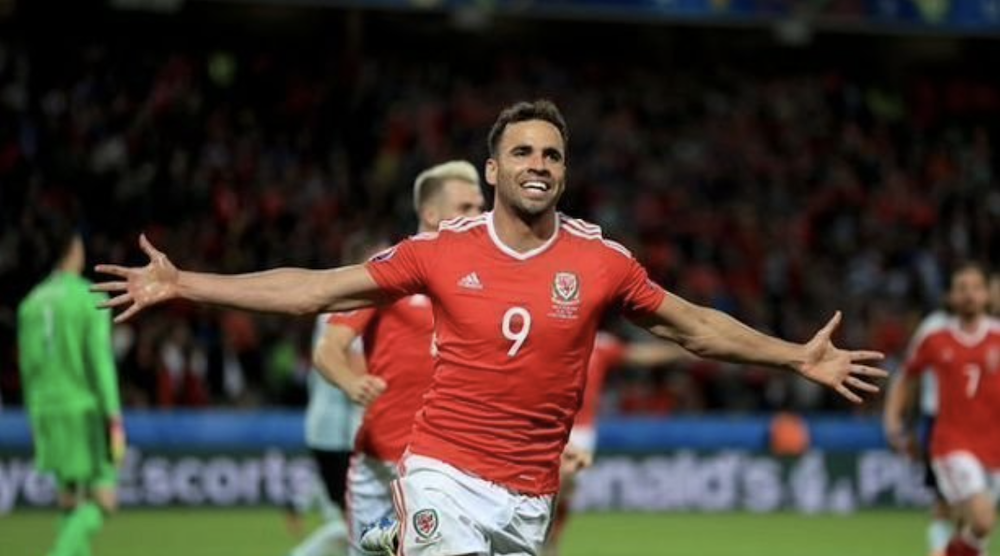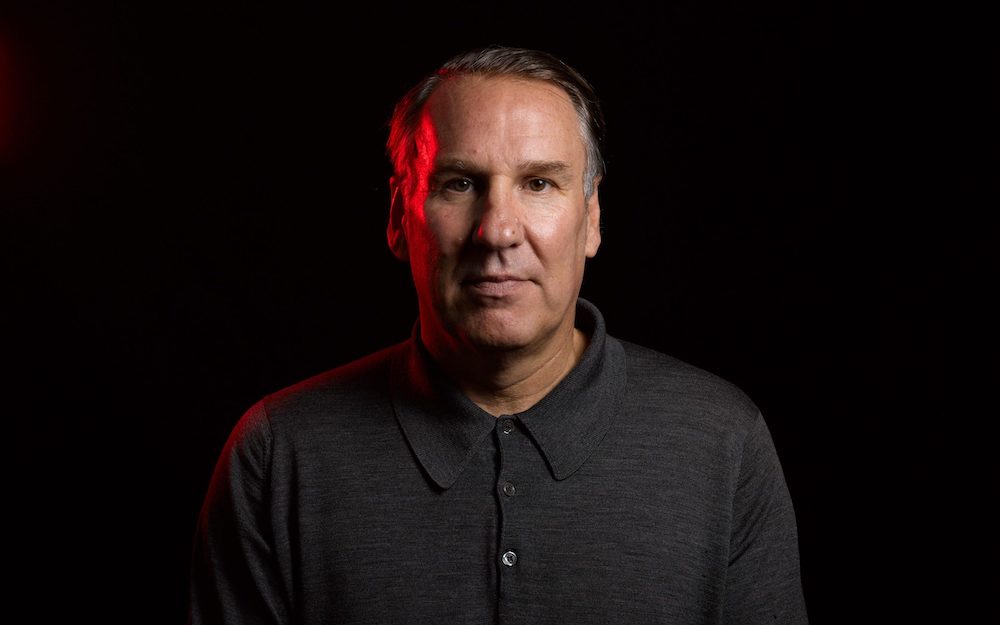Wales star calls for an end to gambling sponsorship in football

As the Premier League returns this weekend, Wales international Hal Robson-Kanu has called for an end to gambling sponsorship in football.
With many Premier League clubs having betting companies, the former West Bromwich Albion player said that “footballers should not be walking billboards for gambling.”
“As a pro athlete, father, and business owner, I’ve always been a big advocate of promoting healthy lifestyles,” said the 33-year-old.
“I believe in the strong and positive values that sport and business can offer us all. That’s why I want to call for an end to gambling sponsorship in football.”
The former Premier League and Wales star said that to not act, but to continue down this path will only put at risk a young generations of fans.
“The sport I love, which has given me so much, is sadly betraying a generation of young fans by relentlessly promoting online casinos,” he said.
“As a player, I never felt comfortable walking out to thousands of fans with betting logos on my shirt and next to the pitches I spent so much time on.
“Millions of people are affected by gambling each year – people lose their homes and their lives and their families.”

Now the footballer beloved of The Red Wall for his stunning goal at Euro 2016 against Belgium is among many calling for the government to intervene and urgently act over the prevalence of gambling advertising in football.
“Ending gambling sponsorship would be a significant and iconic move which will show that the government and football are putting the health of our children and young people before quick profit,” he said.
“I want both football and the government to kick these gambling companies off our chests and out of our grounds.
“Football is worshipped and adored by millions in this country and around the world — our shirts and our stadiums should not be hijacked to promote addictive gambling products.”
‘Worst addiction’
Meanwhile, former Arsenal star Paul Merton, who has fought his own very public battle with gambling addiction, has hit out at “lazy” Premier League clubs for signing sponsorship deals with betting companies and insists there is still a stigma attached to gambling addiction.
Merson’s own battles with gambling, alcohol and drug addiction are well-known, with the 54-year-old speaking openly about his issues in recent years.
But while alcohol sponsorship has been largely curtailed, with any such deal no longer permitted on shirts, gambling advertising continues to be rife within the sport.
Nine Premier League clubs will sport betting firm sponsorship on either the front of their shirts or on the sleeve in the upcoming season.
Merson – who has announced his support of Recoverlution, a new online addiction recovery hub – believes those clubs should be doing more to keep gambling from becoming a main focus of the league.
“I think it is lazy,” the ex-Arsenal forward told the PA news agency.
“If you look at the big six, six of the biggest clubs in the world, none of them have gambling on their shirts.
“We are in the day and age where we have the best league in the world, one of the best products anywhere in the world is the Premier League.
“I don’t know a company that wouldn’t want to sponsor a Premier League club and I just think it is lazy, lazy work to just go out and get gambling advertising.
“Having it plastered onto the front of their shirts and on those shirts that adult fans buy, it doesn’t send a good message. It is lazy.”

Merson told PA that gambling was the “worst” addiction he has suffered from, with drugs and alcohol also having caused issues throughout his life.
But he feels other addictions have been taken more seriously, citing the lack of alcohol sponsorship in the Premier League as a prime example.
“They clamped down on alcohol sponsors but people still drink so gambling advertising needs to be calmed down now, 100 per cent,” he added.
“I think it shows the stigma is still there with gambling, people say ‘just don’t do it’.
“I’m not saying ban gambling forever, of course not. If you can have a bet, control it and enjoy it, fair play to you.
“But before the game on TV, at half-time, on the shirts, on the boards around the pitch. It is too much.
“That’s why I’m so passionate about Recoverlution, it is for 24/7 and it’s anonymous if people want to go on.
“There is a stigma still out there, one in 10 people still think it is a weakness, not an illness.”
A fan-led national campaign has been launched urging football clubs to put an end to gambling sponsorship.
Football Supporters Against Gambling Ads, which includes people recovering from gambling addiction and families bereaved by gambling-related suicide, has started more than 20 petitions.
The campaign group hopes to secure one million signatures and wants clubs across the country to cancel all existing gambling partnerships and pledge to reject future advertising deals.
“Nowhere is gambling’s pernicious presence felt more than in football, which acts as the ‘hook’ that draws young, first-time gamblers in, setting them up for a lifetime of addiction,” read a statement from the group.
If you are struggling with gambling addiction help is available via www.gamcare.org.uk
Find out more about Recoverlution HERE
Support our Nation today
For the price of a cup of coffee a month you can help us create an independent, not-for-profit, national news service for the people of Wales, by the people of Wales.






The deregulation of gambling has caused nothing but misery.
The gambling business should not be allowed to advertise at all, never mind sponsor the sports it exploits and cheapens.
More to the point – lets have the sports governing bodies take the decision to look elsewhere for funding and support.
Excellent article. I am amazed by the amount of adverts for gambling on TV. I watch The Chase frequently – an early evening show sponsored by a gambling company – so many children must be attracted. As Paul Merton said it’s the worst of his addictions.
“If you look at the big six, six of the biggest clubs in the world, none of them have gambling on their shirts.”
But how many of the big 6 have engaged with NFT’s which is a gamble in itself? How many have engaged with “Visit Rwanda”, or others, despite the very serious and concerning issues within that nation?
At what point do we ask that gambling companies – who spend a portion of their adverts telling us to set limits and don’t gamble if emotional – are less of a threat than new and more unregulated ventures or sports-washing?